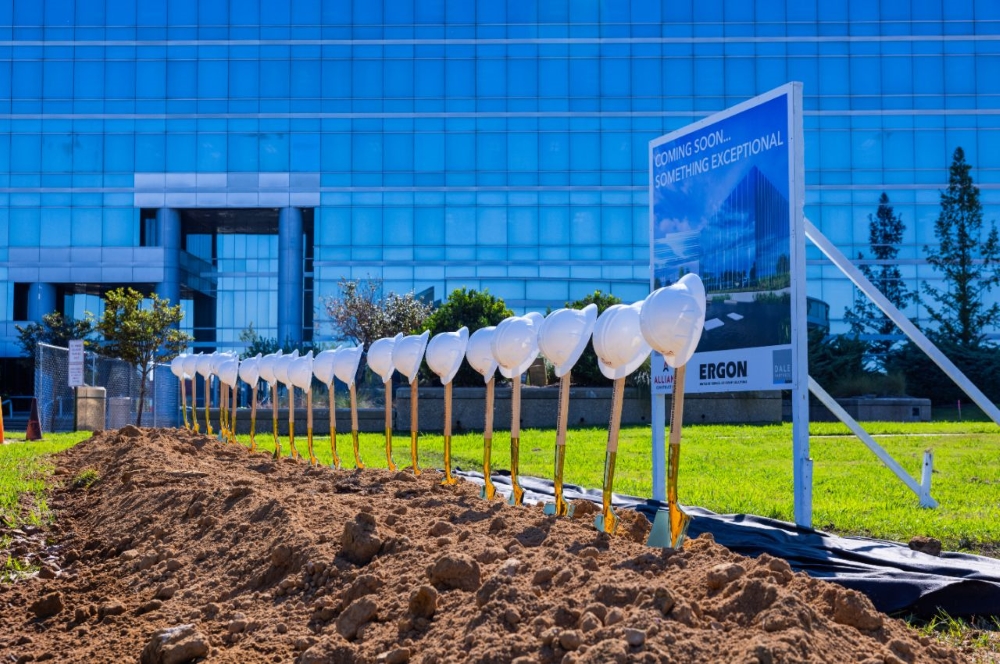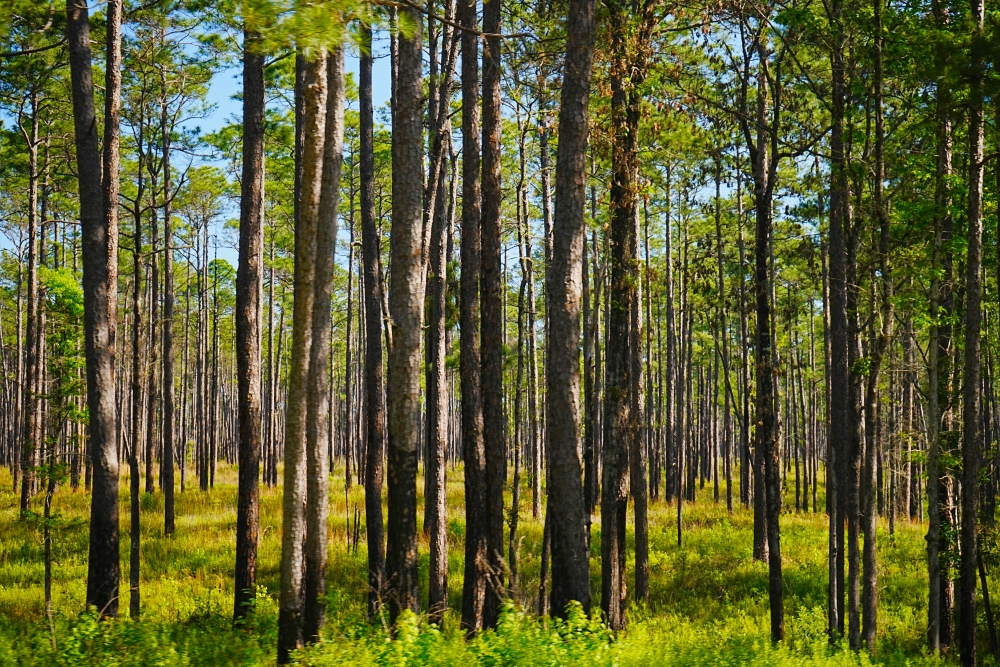Forestry companies are finding the only thing stronger than Mississippi timber is the state’s ability to support long-term, sustainable operations.
Abundant forestland, covering 65% of the state, continues to nourish an estimated $15.4 billion forestry and forest products industry each year. Such availability brings no surprise that at 14.9%, forest product manufacturing holds the largest share of Mississippi’s total manufacturing GDP. It’s cemented the state as the third largest timber producer by acres in the U.S. Southeast, while supporting over 84,000 forest-related jobs.
“Logistically, Mississippi is situated within proximity to rapid population-growth areas like Dallas, Nashville and Atlanta,” says Mississippi Development Authority Economic Development Specialist Marc Measells. “This is ideal for these markets, which can use Mississippi forest products in new residential construction. Additionally, industries are locating in Mississippi due to our more favorable growing season and our friendly business environment.”

Ergon broke ground on its new Flowood HQ at the Mirror Lake Plaza in August 2024.
Photo courtesy of Ergon Inc.
Mississippi’s mix of timber supply has made it the state’s second largest commodity as the state’s forests provide a unique portfolio of 50% hardwood and 50% softwood. These forestry products find favor internationally as top customers— China, Mexico, the Netherlands, Japan and the United Kingdom— are responsible for over $487 million worth of Mississippi’s wood exports, according to data released in 2024 by the Mississippi Department of Agriculture & Commerce.
In the Choctaw County town of Ackerman, Southeastern Timber Products decided now was the ideal time to expand the company’s operations in central Mississippi. The homegrown company’s roots trace back to 1972, focusing on production of southern yellow pine lumber, timber and decking products. A new growth opportunity was introduced by entering into a joint venture partnership with Canada-based forestry company Tolko in 2018, forming Southeast Timber Products LLC.
The JV was pursued with a goal of increasing the current 120 million board feet (MMFBM) per year capacity to 250 MMFBM annually. In February 2025, the company announced a $123.4 million expansion of its Ackerman site, whose expansion will ultimately result in an increased production capacity of 300 MMFBM per year once completed.
“When companies like Southeastern Timber Products choose to upgrade and expand their Mississippi facilities, it further demonstrates the fact that our state has the abundant natural resources and the right mix of people—landowners, loggers, foresters, etc.—to sustain and welcome new forest industries,” says Measells. “Mississippi has more than 19.2 million acres of forestland, and for a smaller state like ours, that is a remarkable number.”
This forestland has enabled companies like Southeast Timber Products to not only handle the full lifecycle of production in Mississippi for decades, but offers the room and resources required to expand with ease. The project’s details include a brand new sawmill line, new dry kilns and storage facilities to be constructed at the site. Over the next two years the company will create 40 new jobs in the region.
“Over the past five years, Mississippi has seen growth in the forest industry with both mill expansions and new mills locating across the state,” says Measells. “I expect this trend to continue, with the potential for new technologies and products being produced.”
As beneficial as the state’s topography has been to building a thriving forestry industry, it is just as vital to pioneering research to protect the land. Heading over 200-miles south to Mississippi’s Gulf Coast, the Mississippi Forestry Commission has received $14.18 million to acquire 14,071 acres along the Wolf River, located in Harrison and Hancock counties. The funding came through the U.S. Forest Service’s Forest Legacy Program Grant to purchase land for educational purposes pursued by researchers at Mississippi State University, local landowners and others eager to learn about managing coastal forests.
“The 14,000 acres will be used to educate and train natural resource students on sustainable forest management practices that can be used to help forest landowners continue producing a viable and sustainable source of timber for the forest industry to utilize for many decades,” says Measells.
Mississippi State’s Forest and Wildlife Research Center (FWRC) will lead management of the bottomland hardwood and upland forests, which are a part of the Coastal Headwaters Protection Initiative in Harrison and Hancock counties along the Wolf River. The 10-mile property will serve as an outdoor learning lab that will host teaching, research and outreach programs.
The FWRC will manage 7,000 acres each of hardwood riparian forests and upland pine forests, while aiming to regenerate native longleaf pine ecosystems. This coastal addition joins the university’s over 30,000 acres of forestland across the state. Aside from the hands-on experience the university’s College of Forest Resource students will gain from visiting the property, it will also serve as a research platform whose learnings will guide future coastal forest conservation and management.
“Industry representatives are looking for partnerships with university faculty and staff to collaborate on research that will allow the industry to thrive by enhancing forest sustainability,” says Measells.
Here For Reliable Operations
Converting raw materials into in-demand products is a skill Mississippian’s know best. It translates across all of the state’s key industries and is best supported by a consistent stream of new and expansion project investments.
Chemical and energy products have become a staple of the state’s largest exports, supported by industry leaders such as Chemours, Chevron, Denbury, Gulf LNG and Matheson Tri-Gas who have called the state home for decades.
In DeLisle, Mississippi, operations at the Chemours Company led Germany-based chemicals company PCC Group to begin expanding one of its core business areas in the U.S. market. In December 2024, it was announced that PCC GulfChem Corporation would be making the move to establish its own facility at Chemours’ titanium dioxide plant, which was identified as a prime location to grow the company’s chemical business.
PCC is set to begin construction of a new $540 million chlor-alkali facility on the 2,600 acre site in 2026, which will feature technology designed to increase energy efficiency, carrying an annual nameplate capacity of 340,000 metric tons. Once operational in 2028, Chemours plans to leverage PCC’s fresh chlorine supply. The co-location was a strategic move for both companies, as chlorine is a key component of titanium dioxide products used in coatings, paints and plastics markets.
“We’re proud to collaborate with local and state partners, investing in the economic success of the place we call home.”
— Kris Patrick, CEO of Ergon
“Today, Chemours Titanium Technologies takes an important step in its continued operational excellence transformation, under Pathway to Thrive, partnering with the PCC Group to gain increased supply reliability through on-site chlorine at our DeLisle TiO₂ facility,” said Chemours President and CEO Denise Dignam. “This new partnership will enable us to lower our manufacturing costs and better serve our customers as their trusted TiO₂ partner of choice. It also reinforces our commitment to the Mississippi Gulf Coast community we have called home for nearly 45 years.”
Industry growth can additionally be felt by Mississippi-bred companies such as Ergon Refining, who found its beginning in Jackson in 1954. Since then, the specialty naphthenic product manufacturer has grown its portfolio internationally while holding down a workforce of 1,200 in Mississippi.
Soon after wrapping on the $85 million investment to expand its Flowood headquarters, adding an additional 200 members to the Ergon team, the company felt its Mississippi base wasn’t yet complete. Months later in March 2025, Ergon returned with an announcement of a $400 million, 20 new jobs expansion of its Vicksburg manufacturing site.
“Today, there aren’t many places you’d go around the world that have not been impacted in some way by the specialty solutions produced at our Vicksburg refinery,” said Ergon President & CEO Kris Patrick. “I’m incredibly proud of the work our employees do to continue our legacy of quality products and services that make a positive global impact. As we move forward, we’re proud to collaborate with local and state partners, investing in the economic success of the place we call home.”
By 2027, Ergon’s Vicksburg operations will integrate gasoline production and a new dual cogeneration power complex. The project will establish pipeline infrastructure that will connect to a fuel terminal in the city that was purchased by the company in 2023. The move will house a robust local gas supply, producing up to 6,000 barrels of gasoline per day. Ergon has said the move will enhance the wholesale fuel sales market in regions of Mississippi and Louisiana. In all, the expansion will result in a 20% increase of Ergon’s crude distillation capacity.

